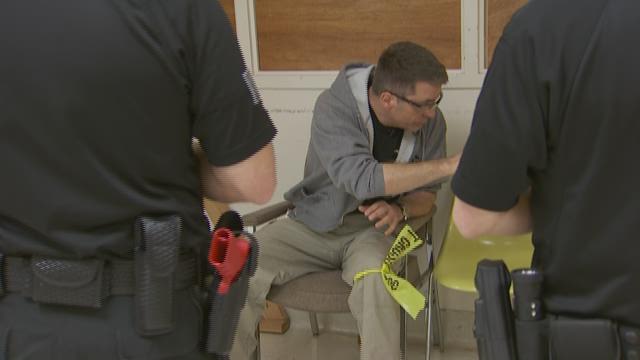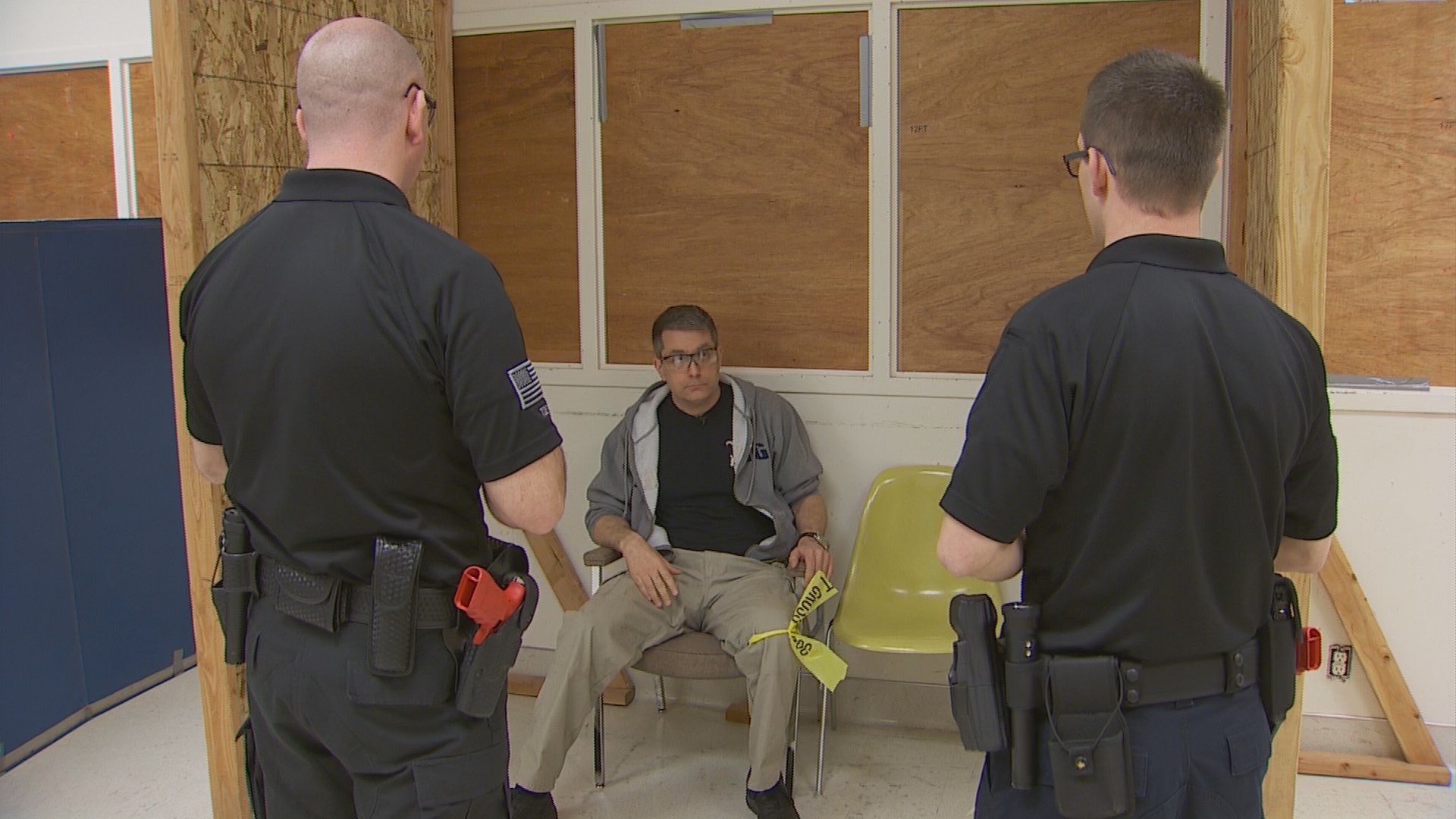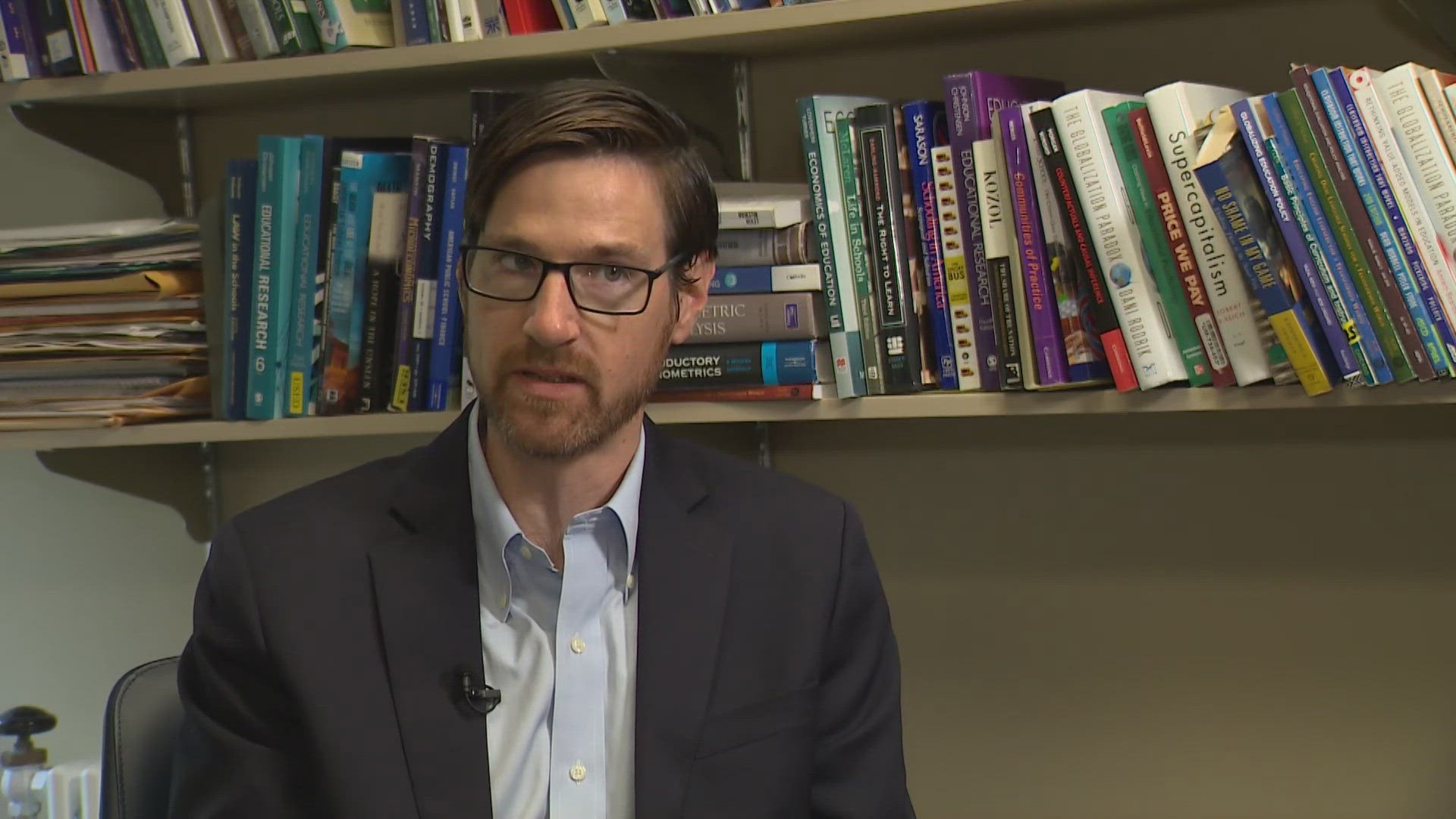On a Wednesday morning at 7 a.m., eleven new officers are in a training facility on Airport Way. They're here to learn how to interact with people who are hearing voices in their head, are suicidal, or perhaps are under the influence of drugs or alcohol.
This is crisis intervention training for Seattle police. The training includes classroom instruction, along scenario training, where officers interact with instructors playing various roles, from a woman threatening to jump from a bridge to a mentally ill man walking into traffic.
The officers need to figure out how to verbally de-escalate the situation and then decide whether the person is arrested, hospitalized, or referred to other services.
"I think officers have been doing it for years and years and years," said instructor Andrew Marvel. "This formalized training. It's a little new."
Whether or not they realize it, they may have to use these skills as soon as they hit the streets.
"I saw two suicides my very first week," said Marvel. "One was a female who committed suicide by firearm. And one was a jumper off of a bridge."
Although the cases seem rare, like the man who climbed up to the top of a tree in downtown last month, they happen quite often. Up to 60 percent of the calls a Seattle Police officer responds to are people in crisis. That means they're in emotional or mental distress and creating a disturbance that is disruptive to the community or themselves.
The 8-hour training is a requirement for every Seattle police officer. The department also has a Crisis Response Team of officers, certified with more than 40 hours of training.



